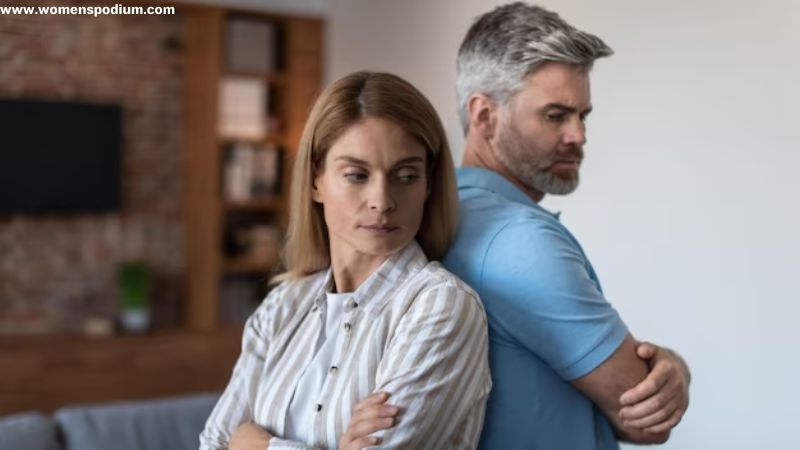
If you’ve ever found yourself in an age-gap relationship, you’ve probably received countless pieces of advice from well-meaning friends, family, and even strangers. Age-gap relationships, where one partner is significantly older or younger, can certainly work out, but they also come with their own unique set of challenges. One of the main obstacles you might face! Navigating through the sea of unsolicited bad relationship advice that is mostly ridiculous. So, here we are, ready to debunk the myths and expose the worst age-gap relationship advice that’s ever been dished out.
10 Bad Relationship Advice For Any Age-Gap Relationship!
Age-gap relationships often get a lot of uninvited advice. Some of it may be helpful, but there’s also a lot of bad relationship advice out there. In this article, we’re going to tackle some of the worst age-gap relationship advice that you should avoid.
Bad Advice #1: Age Is Just A Number

This phrase is often thrown around as a way to justify age-gap relationships. And while it’s true that age doesn’t necessarily dictate maturity or compatibility, it can play a large role in life stages, cultural references, and life experiences. Dismissing age as just a number can be a dangerous oversimplification even if you are looking for casual dating. Ignoring these differences can result in a lack of common ground and understanding.
Bad Advice #2: The “Half Your Age Plus Seven” Rule

Perhaps one of the most notorious pieces of advice is the “half your age plus seven” rule. It insists that the youngest person you should date is half your age plus seven years. While this might be a fun math equation to play around with, it’s not exactly a solid foundation for a relationship. Age is not a plaything for you to experiment with your relationships.
Bad Advice #3: Older Partners Should Always Take The Lead

One of the most damaging pieces of bad relationship advice is the notion that the older person in a relationship should always be the one in control, making decisions and setting the pace. This can lead to an unhealthy power dynamic that stifles the younger person’s development and independence. It’s essential that both partners feel equally valued and have a say in decision-making. After all, a relationship is a partnership, not a mentorship.
Also Read: Only the equality in a relationship teaches you the meaning of family and what it takes to be there for each other.
Bad Advice #4: Younger Partners Should Try To Act Older

Just as the older person is expected to take the lead, another bad relationship advice suggests that the younger person should try to act older. A younger partner is expected to ‘fit in’ with their partner’s age. This can result in the younger person feeling pressured to give up parts of their youth or change their behavior to appease their partner, which isn’t healthy or fair. Sometimes it leads them to leave the relationship.
Bad Advice #5: You Should Change Your Interests

Another unsettling suggestion is the idea that one partner should change their interests to match the other’s. This can create a sense of imbalance and resentment in the relationship. Couples have to go through some toughest conversations in the relationship to make it a long-term stable relationship. That’s why it is important to share activities, but not at the cost of losing individuality.
Bad Advice #6: People Will Get Used To It

Assuming that everyone will eventually get used to the age difference can set unrealistic expectations. The reality is, that societal attitudes towards age-gap relationships vary widely. You will always be seen as an age-gap couple who are expected to behave like other age-gap couples. One must be mature and the other try to change interests to match the other’s. It’s crucial to be patient and understanding when navigating these reactions.
Bad Advice #7: The Older Partner Should Be The Provider

It’s not uncommon to hear that the older partner in an age-gap relationship should be the financial provider. This can put undue pressure on the older partner and can create a sense of dependence for the younger one. This imbalance sometimes leads to a damaged relationship and then you cannot fix the relationship even if you want to. Equality is important in all aspects of a relationship, including financial.
Bad Advice #8: Younger Partners Are More Adaptable

Another bad relationship advice is the notion that younger partners are more adaptable and should be the ones to change. They are expected to change their habits or lifestyles for the relationship which is both unfair and unrealistic. Change and compromise should come from both partners. Never should one partner bear the burden of adjustment alone.
Bad Advice #9: It’s All About Compromise

While compromise is key in any relationship, suggesting that one partner must always compromise due to their age can lead to an imbalance of power. This can breed resentment and create an unhealthy dynamic. Both partners should feel empowered to express their needs and desires. Compromise is never one-sided in an equal relationship.
Bad Advice #10: The Illusion That Age Equals Maturity

Another piece of advice that we often hear is that an older partner will always be more mature. Spoiler alert: Age does not necessarily equate to emotional maturity. Usually, women are emotionally more intelligent than men. But if you think that an older person will be more mature you may not be correct. Maturity is about personal growth and experiences, not the number of candles on your birthday cake.
By understanding and recognizing these pieces of bad relationship advice, you can better navigate your age-gap relationship and ensure that it’s built on respect, equality, and mutual understanding. Remember, every relationship is unique, so what works for one couple might not work for another.
Also Read: Once any relationship is influenced by public opinion and toxicity, it becomes a mentally abusive relationship and you will regret it no matter what. So, refrain from general opinions.





